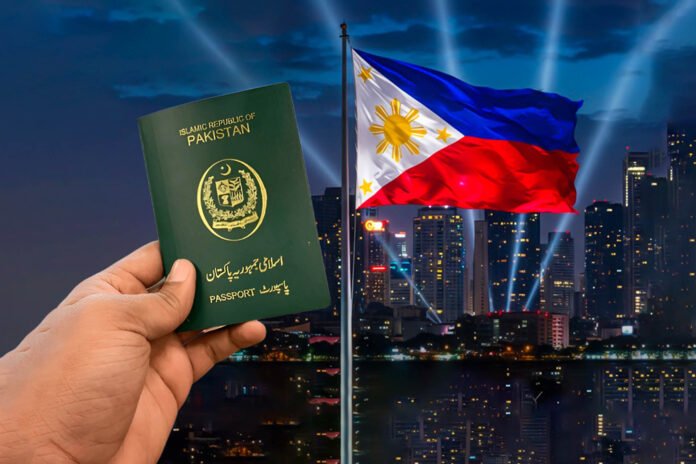Philippines Digital Nomad Visa 2025 lets remote workers live, work, and travel tax-free on foreign income with low living costs and great hubs.
Philippines Digital Nomad Visa 2025: Eligibility and Requirements
In order to qualify into the Philippines Digital Nomad Visa, there are a few main criteria that have to be fulfilled. You should be aged 18 years and be working remotely with the help of digital technology. One of the most important conditions is that one should prove that they have a sufficient income in foreign form, the unofficial minimum threshold is approximately 24,000 USD per year or 2,000 USD per month. You should also be with a clean criminal background and you should have a valid international health insurance policy that will cover your stay in the Philippines. The visa is now open to the citizens of the countries which provide Filipinos with digital nomad visas in return or have Philippine Foreign Service Post.
The process is largely expected to be online via official e-Visa portal and it is likely to take 6 to 12 weeks to process. Documents normally required are a valid passport, evidence of distant employment or freelance (i.e. contracts or payslips), documentation of bank accounts to demonstrate income, health insurance papers, and a police clearance in your home country.
Visa Duration and Benefits
Length of Stay
Philippines Digital Nomad Visa Firstly, the visa is valid one year and is renewable to another year, which means that the visitor can spend up to two years in the Philippines. This is a major benefit compared to the normal tourist visa that involves frequent extensions and run across borders.
Tax Advantages
One of the greatest advantages of the DNV is that the holders will not be regarded as tax residents in the Philippines; thus, they will not have to pay the domestic income tax on their foreign-based earnings. Nevertheless, you have to ensure that you examine the taxation policies in your mother country because you might still pay some taxes in your native country.
Other Benefits
The visa also has multiple-entry rights which offer leeway to travel in and out of the country.
The DNV offers legal transparency and stability and this is one of the key attractions to remote workers. In contrast to the bearers of tourist visas, the holders of DNV are allowed to open bank accounts in the country and get a long-term lease of an apartment, making their everyday life and budgetary matters easier. The visa fee is approximated to be between 200 and 300 USD and this may be cheaper over the long run than the total cost of tourist visa extensions.
Living Expenses and Internet Infrastructure
Digital nomads will find it very appealing to visit the Philippines because of its cheap living standards. To illustrate, a one bedroom apartment located in one of the biggest cities such as Manila or Cebu may cost between 270 to 630 every month which is much less as compared to most of the western nations. One person can spend as little as $150 to 220 a month on food including groceries and eating out occasionally. Also, the transport is quite cheap. Most people in the country speak English and this facilitates easy adaptation and communication with the foreigners.
Internet Access
Even though cost of living is a significant advantage, one of the factors that remote workers consider is internet infrastructure. This is one area that the Philippines has gone a long way as it has enhanced its fixed broadband and mobile internet connections. The biggest cities and the most active digital nomad locations such as Manila, Cebu, and Siargao have good fiber optic internet access and an increasing amount of co-working facilities. Connection to the internet may, however, be less reliable in more remote or rural locations. It is advisable that the digital nomads in the Philippines also have backup internet access in form of pocket Wi-Fi or mobile data plans, particularly when they intend to work in more remote areas.
Popular Digital Nomad Hubs
Manila/Makati
Being the central business district of the country, Makati is an urban area with modern facilities, co-workings and a high social life. It is perfect with the ones who like an urban lifestyle.
Cebu
Cebu being a vibrant city and with a large number of expats offers a perfect balance between a city and a close to beautiful beaches and other natural scenery.
Siargao
This is a surfers island with a lazy, easy-going atmosphere. It has already become the destination of digital nomads who want to live in the tropics and have a powerful community of fellow-travellers.
Boracay
Boracay is a well-known tourist attraction with white-sand beaches and, due to the multiple accommodation options and an increasing quantity of work-friendly coffeehouses, this resort provides digital nomads with a welcoming environment.
Such places, and many others, can be found there are flourishing digital nomad communities and associations assisting remote workers to connect, network, and source resources. The entry of the DNV is likely to cement the Philippines as one of the leading destinations of the global workforce in remote work further, promoting the economic development and cultural exchange.
Conclusion
To sum up, the introduction of Digital Nomad Visa in the Philippines in 2025 is a milestone towards the attraction of the global workforce by remote work. This visa offers a legal structure that is clear with one-year stay, one-year extension and multiple entrance rights. Among the most important advantages, tax exemption on the foreign sourced income, legal residence, and the possibility to enjoy the low cost of living and the rich cultural background of the country should be listed. Internet infrastructure is still being enhanced, particularly in key hubs such as Manila and Cebu but all in all the Philippines as a digital nomad destination cannot be ignored. The DNV is a brilliant step since it does not only favor the foreign remote workers who are in need of a new base but also is set to increase the economy of the locals as well as the creation of a more globally connected community.



